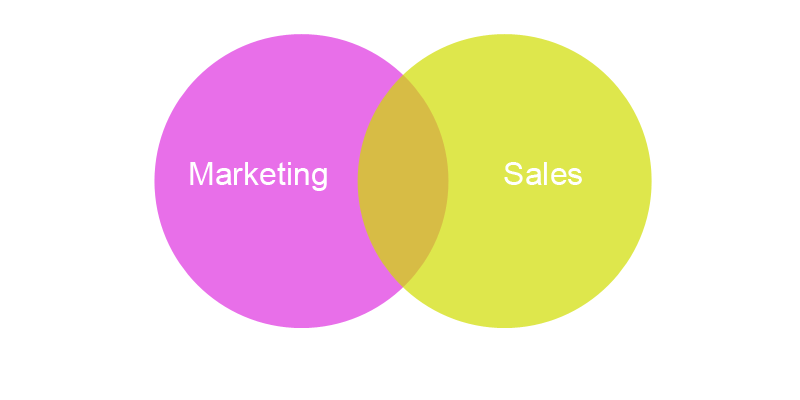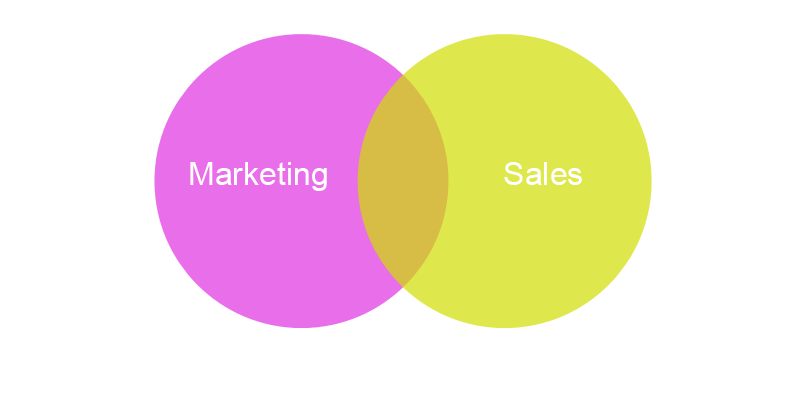I need a marketing automation tool for my marketing team, but I also need a sales automation tool for my sales team. Do I purchase two separate tools, or should I look for software with a combination of both? This is a question that I have heard from many customers, and I’ll try to answer it here, with the reasons.

In the modern age, most of the organizations have marketing & sales teams that work together, and have goals that are aligned to each other. This is a major step forward in the world of business technology.
Marketing teams might need to generate a certain volume of leads, while sales team needs to work on closing these leads. But, not all these leads may be important, so to have an effective process, certain criteria needs to be defined to identify a “Qualified Lead” & a “Quality lead.”
The overlap
Sales and marketing are evolving together, changing with times, which means that modern CRM should reflect these changes. With combined processes, one can easily accelerate the lead’s lifecycle by integrating customer data with behavior tracking. To elaborate further let us discuss the purpose of marketing and sales.
The purpose of marketing
Marketing primarily focuses on attracting attention and creating interest. Marketing creates a certain brand image. Marketing sources in current world are websites, organic search, referral sites, direct traffic, social media, pay per click ads, advertisements on other sites, and a wide variety of other sources.
The purpose of sales
Sales primarily focuses on converting interest to a deal. Sales will include many activities, like phone calls, emails, text messages, meetings etc. Sales ideally interacts with the customers more directly than marketing.
Smarketing
When the two functions combine, marketing and sales departments work as a single unit. Marketing sells (creating visibility) on a large scale, while sales markets in a one-on-one fashion, using the information-sharing and persuasion tactics. With sales and marketing working so closely, there’s a clear value in getting the two divisions on the same page, and working in even more alignment. For small businesses, that’s particularly important as getting the best out of one single lead is crucial.
Benefits of combining CRM and marketing automation
- Sales and marketing teams working as a single unit will have common goals and will work on the same data. Sales will be accountable for ROI of marketing campaigns as well, while marketing will be accountable for sales revenue, in addition to their traditional roles.
- Communication to the customer during the marketing sales cycles will be consistent.
- More conversions, as automation will aid the sales pitch; sales guys will also know the right time to contact the lead because of web tracking.
- Transparency in the process, as both the teams exactly know the criteria for qualified leads.
- No need of feedback from sales to marketing as they are a combined unit and the required insights will reflect in the system.
- Automated lead scoring based on the leads activities will give the sales team an idea of which leads to chase first.
- Consolidation means that you get actionable insights into every aspect of the sales and marketing process, from prospect interaction with your site, emails or app, to telephony and sales pipeline.
Combination of marketing and sales becomes a smart option for businesses looking to get the most out of every penny spent on marketing and sales, and to get maximum value to the customers.
This brings me to the end of this guide. Hope it helped you in understanding what CRM is, the questions you must ask yourself before you choose a CRM, and the benefits of a combined CRM and marketing automation system. Please share this guide if you liked it. It inspires us to create more stuff like this. You can ask me any questions you want, and I’ll get back to you. :)









